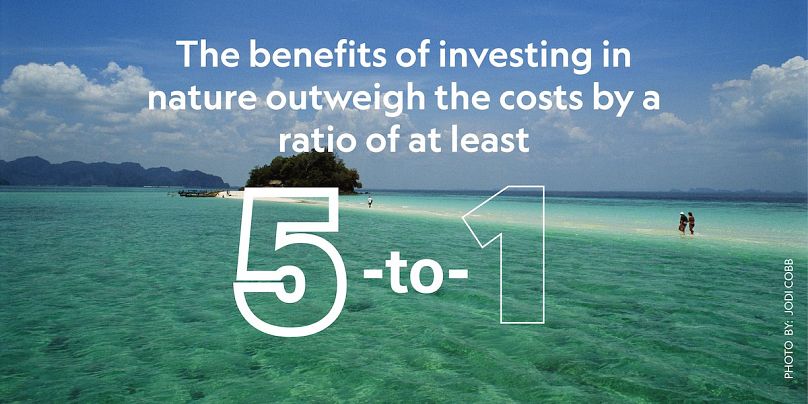A new study from the Campaign for Nature has found that wildlife conservation pays off for the global economy.
A new report has found that greater protection of the environment will significantly boost the global economy.
The Campaign for Nature is a coalition of more than 100 conservation organisations from around the world, calling for world leaders to commit to the ‘30 by 30’ pledge, by protecting at least 30 per cent of the planet by 2030.
The report, led by Dr Anthony Waldron at the University of Cambridge, analyses the economic implications of the ‘30 by 30’ target. The research, released today, shows that the financial benefits of the proposition outweigh the costs five-to-one. This is the first major paper to show how conservation efforts lead to measurable economic gains.
“Expanding the global protected area estate to at least 30% by 2030 is an essential policy requirement to halt the loss of fellow species on our planet,” says Dr Stephen Woodley, from the International Union for Conservation of Nature (IUCN).
“We must give space for nature,” he adds, “Protecting nature halts biodiversity loss, helps fight climate change and lessens the chance of future pandemics. This is sound public policy, economically, ecologically and morally.”
Currently around 15 per cent of the world’s land and 7 per cent of the ocean is protected to some extent, at a cost of just over €21bn a year. Protecting 30 per cent of the planet’s land and ocean would require an annual investment of around €124bn by 2030. The Waldron report concludes that reaching this target would bring an extra €531bn back into the global economy.
“The cost to protect 30 per cent of our planet is not inconsequential,” comments Dr Jamison Ervin from the UN’s Development Programme. “However, nature provides more than $125 trillion in benefits to humanity.
“The benefits to humanity are incalculable, and the cost of inaction is unthinkable. This report unequivocally tells us that the time to finance nature — for people and for the planet — is now.”
The Campaign for Nature now hopes that the report will help spur governments to join the commitment to protect safeguard around a third of the planet. Some countries, like Canada for example, already have this pledge enshrined in formal public policy.
Scientists say that putting at least 30 per cent of the planet's land and oceans under protection by 2030 is the minimum needed to halt global biodiversity loss, which is a crisis the World Economic Forum sees one of the top five risks facing the global economy.
“The value of Earth’s biodiversity - in strict monetary terms and in ecosystem services terms as demonstrated in our report and in spiritual and moral terms that defy quantification - is far higher than the cost and effort needed to save it,” adds Dr Greg Asner of Arizona State University and contributor to the report. “The world needs to raise its ambition and fund the 30% protection that science clearly tells us is necessary.”
Conservation is vital in a post-pandemic world
The Waldron report also highlights the importance of safeguarding nature in relation to public health. Conservation can help minimise the risk of new zoonotic disease outbreaks, such as COVID-19.
The nature conservation sector is one of the fastest growing sectors, and is projected to grow by a further 4-6 per cent each year in the wake of the coronavirus crisis. In comparison, agriculture, fisheries and forestry are projected to see annual growth of less than 1 per cent.
A recent study found that the economic value of protected areas was over €5 trillion a year, when measured in relation to mental health. As more people find sanctity in nature amid the stress of the coronavirus pandemic, improved conservation is an important way to boost the economy as the world deals with the lasting impacts of COVID-19.












